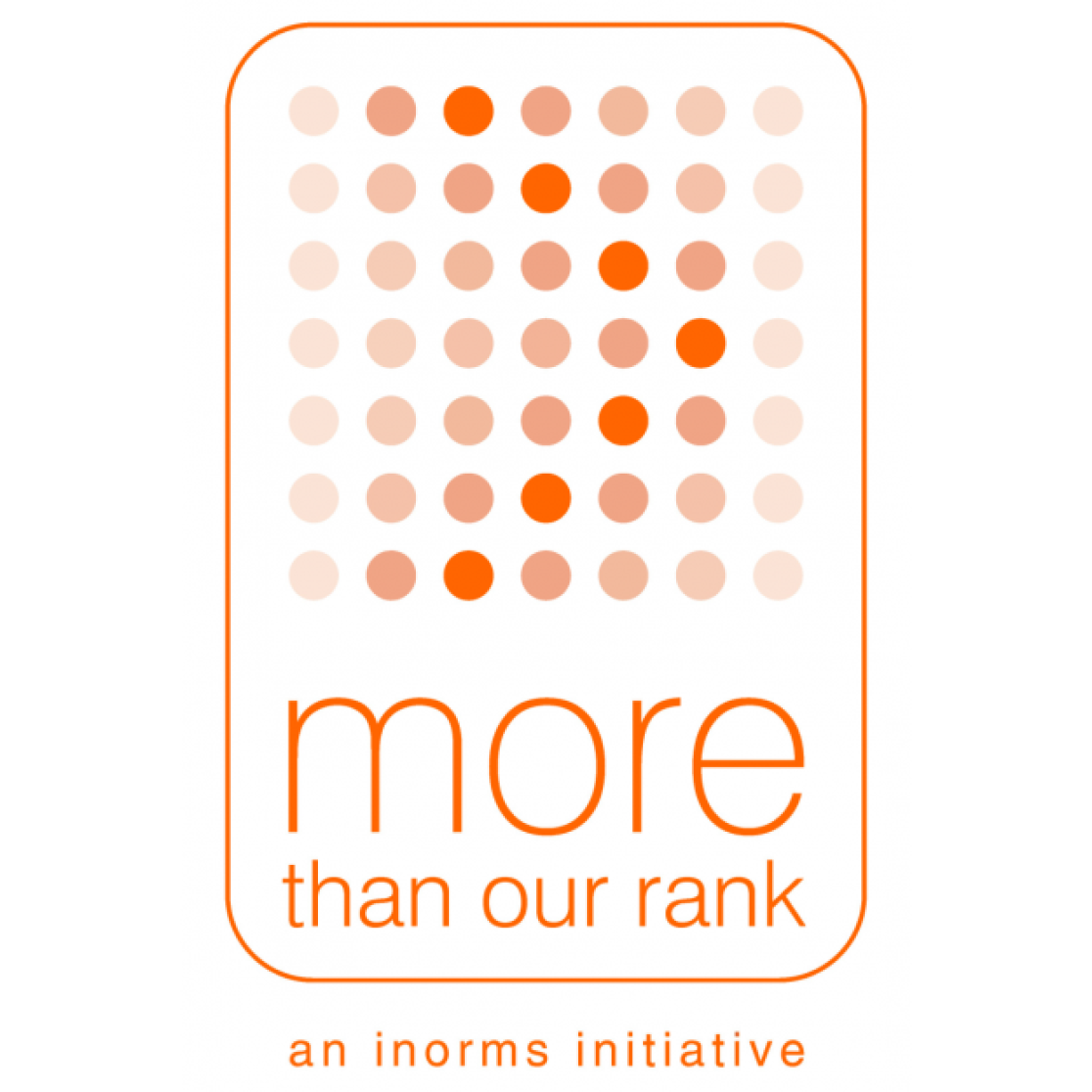Rankings & accreditations
Maastricht University (UM) achieves high rankings in national and international assessments and is now recognised as one of the best young universities globally.
Quick links to:
Student satisfaction
National rankings
International rankings

Student satisfaction
National Student Survey
Together with all other Dutch educational institutions, Maastricht University yearly participates in the National Student Survey. Students are asked to give their opinions about their bachelor's or master's programme. They indicate to what extent they are satisfied with, among other things:
- the programme's content
- the student guidance
- the work load
- their teachers
the exams.
The National Student Survey's results are published yearly by Studiekeuze123 (in Dutch). The results serve as study choice information for prospective students, and UM uses them for internal quality assurance analyses.
Read more about the National Student Survey on the Studielink123's website (in Dutch).
National rankings
- Keuzegids Universiteiten
The Keuzegids compares bachelor's and master's programmes in online guides for prospective students. To rank the bachelor's and master's programmes, Keuzegids predominantly uses the results of the National Student Survey. In addition, other sources are considered, such as DUO's 1cHO data base, ROA's data on the labour market (only for masters) and Nuffic's figures on internationalisation.
In the Keuzegids Universiteiten, bachelor's programmes in academic higher education are compared on themes such as content, teaching staff, assessment, preparation for a career, the atmosphere within the programme, progression to the second year, and graduation within four years. Programmes that score well above the national average in all areas are awarded the designation ‘Top-rated Programme’.
Keuzegids Masters
The Keuzegids Masters provides an annual overview of all master's programmes in the Netherlands and compares student satisfaction within specific fields of study in terms of content, teaching staff, assessment, career preparation, and the overall atmosphere of the programme. This information is based on the National Student Survey.
In addition, the Keuzegids Masters presents data on student intake, the percentage of international students, mode of study (full-time/part-time), language of instruction, and offers insights into the labour market prospects for each field of study.
Unlike the Keuzegids Universities, the master's programmes are not ranked and therefore are not given any evaluative label such as ‘Top Programme’. However, Keuzegids does indicate that programmes are considered excellent if they receive a ‘++’ rating across all underlying criteria.
- EW Magazine: ‘De Beste Studies’
Since 1994, EW Magazine, supported by researchers from ResearchNed, has been collecting and analysing study-related data for prospective students. 'De Beste Studies' provides information on student numbers, success rates, and links to the programme's websites. A key element is the analysis of results from the National Student Survey. EW awards gold, silver, or bronze medals to programmes with the most satisfied students. The most recent edition of EW De Beste Studies was published in 2023.
Click here for more information about EW 'De Beste Studies' (in Dutch).
Internationale rankings
Position UM in international rankings and UM’s position regarding international rankings
UM is featured in various international rankings, including the Times Higher Education (THE), QS World University Rankings, and the Academic Ranking of World Universities (ARWU/Shanghai Ranking). These league tables, which often focus on metrics such as research output, academic reputation, and staff-to-student ratio, are used globally by students, academics, and policymakers.
However, these rankings have their limitations: they oversimplify complex education systems by reducing a university’s performance in research, teaching, and societal impact to a one-dimensional overall score, and they do not reflect the broader impact of a university.
Furthermore, rankings are often at odds with strategic priorities and core values such as Recognition and Rewards. The methodologies used in international rankings lack transparency, which makes interpretation, reliability, and validity problematic. UM supports the position paper by Universities of the Netherlands (UNL) “Ranking the university” and urges users to approach such rankings with caution.
Although UM achieves high positions in international rankings and is considered one of the best young universities in the world, we emphasise that the quality and unique characteristics of UM are not fully captured in these rankings. We advocate for a much broader understanding of what constitutes success, and for this reason we support the international initiative More Than Our Rank.

UM's results in some international rankings
Times Higher Education (THE)
Positie van de Universiteit Maastricht in de Times Higher Education rankings:
- THE World University Rankings: 132
Lees hier meer informatie over de ranking.
- THE Young University Rankings: 10
Lees hier meer informatie over de ranking.
- THE Subject Rankings:
| Medical and health | 58 | |
| Psychology | 55 | |
| Law | 29 | |
| Education Studies | 26 | |
| Business and economics | 83 | |
| Social Sciences | 126-150 | |
| Computer science | 401-500 | |
| Physical Sciences | 401-500 |
Klik op het subject voor meer informatie over de subject ranking.
THE Impact Rankings:
| SDG 3 - Good Health and Wellbeing | 101-200 | |
| SDG 10 - Reduced Inequalities | 301-400 | |
| SDG 12 - Responsible Consumption and Production | 101-200 | |
| SDG 13 - Climate Action | 101-200 | |
| SDG 16 - Peace Justice and Strong Institutions | 201-300 | |
| SDG 17 - Partnership for the Goals | 801-1000 | |
| Overall Ranking | 401-600 |
Klik hier voor meer informatie over de ranking.
QS
Maastricht University's position in the QS rankings:
- QS World University Rankings: 230
Click here for more information about the ranking.
- QS by subject:
| Arts & Humanities | 451-500 | |
| History | 201-250 |
| Engineering & Technology |
| |
| Computer Science | 301-350 |
| Chemical | 251-300 |
| Life Sciences & Medicine | 107 | |
| Anatomy & physiology | 51-100 |
| Biological sciences | 201-250 |
| Medicine | 69 |
| Psychology | 69 |
| Social Sciences & Management | 179 | |
| Accounting & Finance | 151-200 |
| Business & Management Studies | 151-200 |
| Economics | 119 |
| Education | 101-150 |
| Law | 65 |
| Politics & International Studies | 101-150 |
| Sports-related subjects | 51-100 |
| Development Studies | 51-100 |
| Natural Sciences |
| |
| Chemistry | 451-500 |
| Environmental Science | 451-500 |
| Material Sciences | 401-500 |
Click here for more information about the ranking.
- QS Europe Region Rankings: 89
Click here for more information about the ranking.
- QS Sustainability Ranking: 162
Click here for more information about the ranking.
Academic Ranking of World Universities (ARWU)/Shanghai Rankings
ShanghaiRanking's Academic Ranking of World Universities: 201-300
Click here for more information about the ranking.
CWTS Leiden ranking
- ‘Traditional’ CWTS Leiden ranking
Each year, CWTS Leiden publishes a dashboard based on publication and citation data from Web of Science. The dashboard presents various rankings according to different selection criteria. Users can filter by themes such as Scientific Impact, Collaboration, Open Access, and Gender.
Below is UM’s position on various indicators:
| Scientific Impact | Number of publications | 269 |
| Number of publications in top 10% most cited | 210 | |
| Collaboration | Number of publications with collaboration | 171 |
| Proportion of publications involving collaboration out of total number of publications | 152 | |
| Open Access | Number of Open Access publications | 117 |
| Proportion of Open Access publications | 49 | |
| Gender | Proportion of publications with at least one female author | 333 |
Click here for more information about the traditional edition of the CWTS Leiden Ranking.
- Open Edition CWTS ranking
Since 2024, CWTS Leiden has been publishing a dashboard with information on the scientific performance of universities, based entirely on open data: the Open Edition of the CWTS Leiden Ranking.
Below is UM’s position on various indicators:
| Scientific Impact | Number of publications | 272 |
| Number of publications in top 10% most cited | 217 | |
| Collaboration | Number of publications with collaboration | 197 |
| Proportion of publications involving collaboration out of total number of publications | 169 | |
| Open Access | Number of Open Access publications | 197 |
| Proportion of Open Access publications | 119 |
Click here for more information about the Open Edition van de CWTS Leiden Ranking.
Financial Times
